Search Results
Showing results 181 to 200 of 299
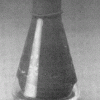
Balloon in a Flask
Source Institutions
Learners observe a flask with a balloon attached over the mouth and inverted inside the flask.
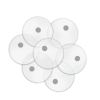
Frog Eggs
Source Institutions
In this activity, learners compare frog eggs to chicken eggs to better understand why frog eggs need water. Learners compare a boiled chicken egg to "frog eggs" represented by boiled tapioca.

Chocolate (Sea Floor) Lava
Source Institutions
In this edible experiment, learners pour "Magic Shell" chocolate into a glass of cold water. They'll observe as pillow shaped structures form, which resemble lavas on the sea floor.
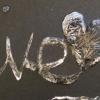
Crystal Painting
Source Institutions
In this activity, learners will "paint" their own crystal artwork by creating a picture with a super saturated salt solution.
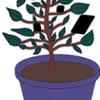
Do Plants Need Sunlight?
Source Institutions
In this activity, learners find out what happens when they cover leaves with pieces of black construction paper. This activity shows learners that plants need sunlight to survive.
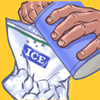
Scream for Ice Cream
Source Institutions
Don't scream for ice cream -- make it with milk, sugar, flavoring and some 'salt-water' ice. Discover the chemistry of ice cream by creating your own.
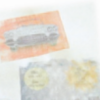
Newspaper Collage
Source Institutions
In this activity on page 3 of the PDF, learners create a collage by using vinegar to transfer color pictures from a newspaper onto a piece of white paper.
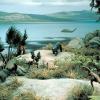
Dinosaur Homes
Source Institutions
In this activity about dinosaurs and survival, learners use scrap materials to create a miniature dinosaur habitat that includes a food source, water source, and shelter.

Crystal Stencil Stars
Source Institutions
In this activity on page 6 of the PDF, learners dissolve Epsom salt in water and discover that the resulting solution can be used to create a work of art.
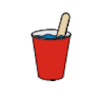
Playtime Paint
Source Institutions
In this activity on page 9 of the PDF, learners make their own paint using chalk as a pigment and glue and water as binders. This activity introduces learners to special mixtures called suspensions.
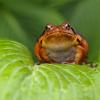
Soak It Up: Understanding Amphibian Permeability
Source Institutions
In this activity, learners will discover how the thin layers of amphibians' skin allow water and other chemicals to pass through it.
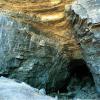
Soda Pop Cave
Source Institutions
In this geology activity (page 6 of the PDF), learners explore how carbonic acid can slowly dissolve limestone and form caves.
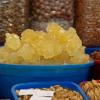
Comparing Crystals
Source Institutions
In this chemistry activity (page 3 of the PDF), learners will learn about crystals by growing their very own.

Unleakable Bag
Source Institutions
In this activity, learners explore the flexibility of polymer chains by pushing sharpened pencils through a Ziploc bag.
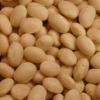
A Swell Activity with Beans
Source Institutions
In this combination chemistry and physics activity, learners explore water absorption in dried beans or peas and learn how this affects their physical properties.
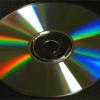
Reflecting Rainbows: Decorate Your White Walls With Rainbow Colors!
Source Institutions
Like water drops in falling rain, a CD separates white light into all the colors that make it up.

Exploring How Liquids Behave
Source Institutions
Learners apply their knowledge from a previous study to identify different liquids--water, corn syrup, and vegetable oil.
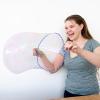
Bubble Tray
Source Institutions
In this activity, learners use simple materials to create giant bubbles.

Ready, Set, Fizz!
Source Institutions
In this activity, learners explore the chemical reaction between water and effervescent antacid tablets. This hands-on activity models how a material can act differently when it's nanometer-sized.
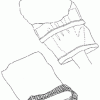
How Animals Stay Warm
Source Institutions
In this quick activity, learners explore how blubber protects animals from the cold by making a "blubber mitt." Using cooking shortening, two zip-top sandwich bags, and duct tape, learners simulate bl
